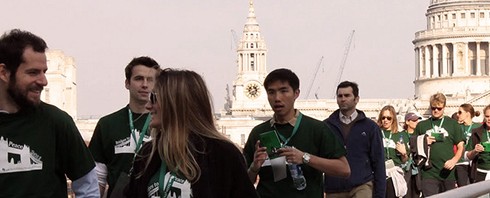Event will transport guests to the Middle East, North Africa and South Asia
NEW YORK | Seeds of Peace is making its annual event hosted by its Young Leadership Committee bigger and better this year. A Journey Through the Peace Market (formerly the Bid for Peace Celebrity Auction) on Thursday, February 16, 2006, will transport guests to the markets of the Middle East, North Africa and South Asia.
This “experience” event, at Skylight, will envelop guests into The Peace Market where they will be surrounded by sounds, smells, tastes, and sights from the Israeli, Palestinian, Egyptian, Moroccan, Afghan, Indian and Pakistani cultures.
Eight-time Grammy nominee John Legend will perform live as will Smadar Levi, who sings in Hebrew and Arabic with Israeli, Palestinian, Lebanese and Turkish musicians. The event will also include a world-music DJ, and graduates from the Seeds of Peace program will speak.
Honorary Host Committee members lending their support for the evening include:
|
|
In addition to the musical performances and celebrity guests from television, film and sports, the event will feature a live auction with luxurious getaways to the Middle East, once-in-a-lifetime opportunities with celebrities and political dignitaries, walk-on roles to hit television shows and tickets to movie premieres, and private cooking lessons with gourmet chefs.
Other unique event details include a hookah tent, tea salon, backgammon room, henna artists, and belly dancers. VIP packages start at $2,500; individual VIP tickets are $750. Both allow entrance to the VIP Reception (doors open at 6:30 p.m.) which includes attendance by Ambassadors, political dignitaries, and celebrities. Individual tickets for the main event (doors open at 7 p.m.) start at $250. The program will begin at 8:30 p.m.
Since 1993, Seeds of Peace has graduated over 3,000 teenagers from four conflict regions from its internationally recognized leadership program. Through its Camp in Maine, its Center for Coexistence in Jerusalem, international youth conferences, regional workshops, educational opportunities, and adult educator program, Seeds of Peace participants develop empathy, mutual respect, and self-confidence as well as leadership, communication and negotiation skills—all critical components necessary for peaceful coexistence.
Skylight is located at 275 Hudson in Soho (between Dominick and Spring Streets).






